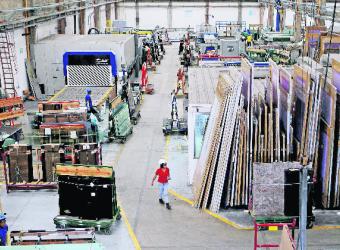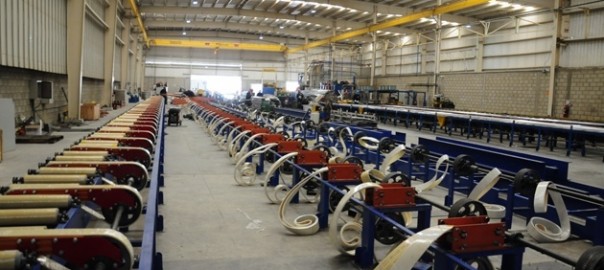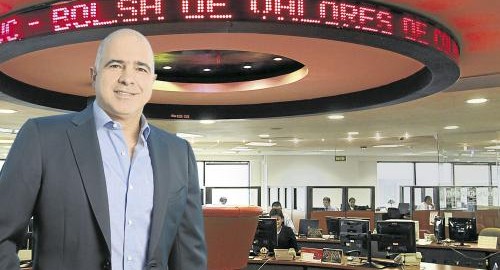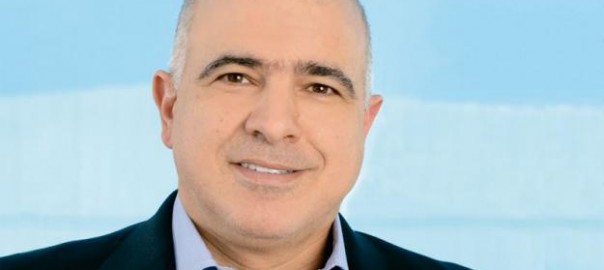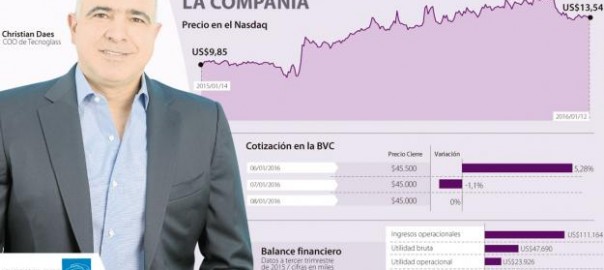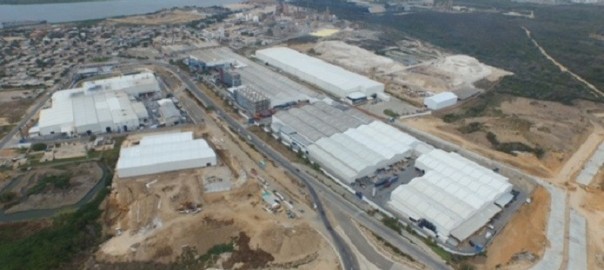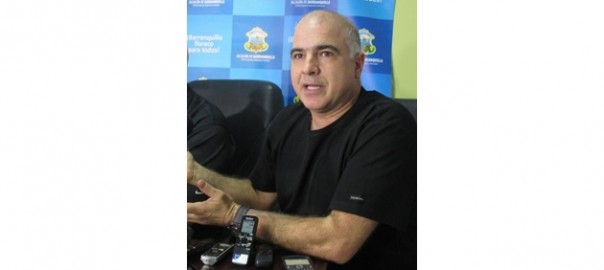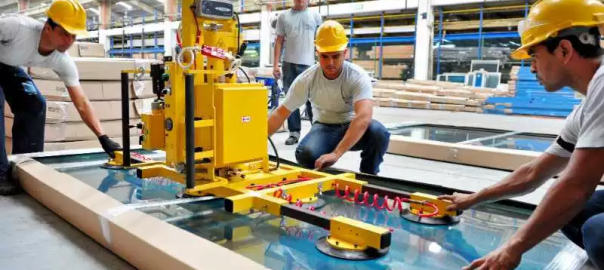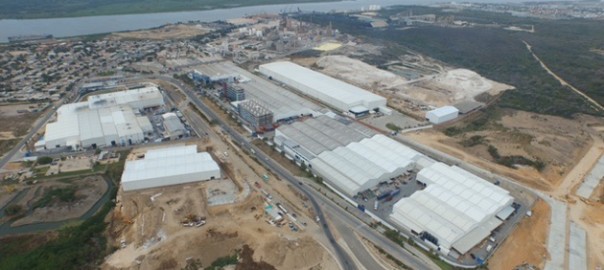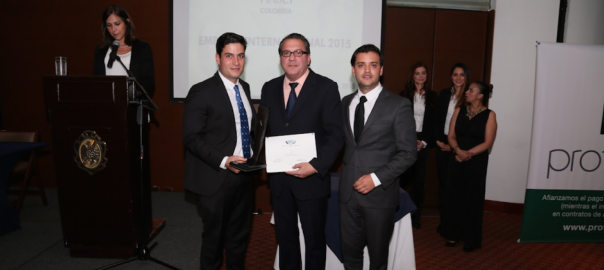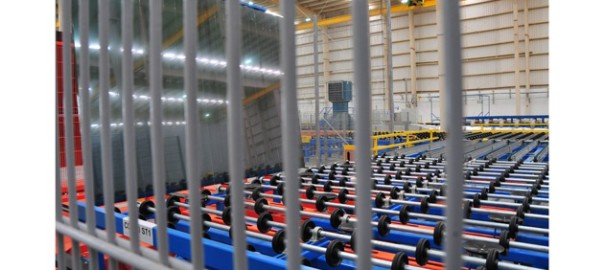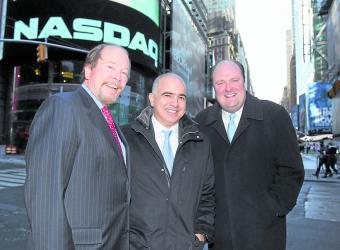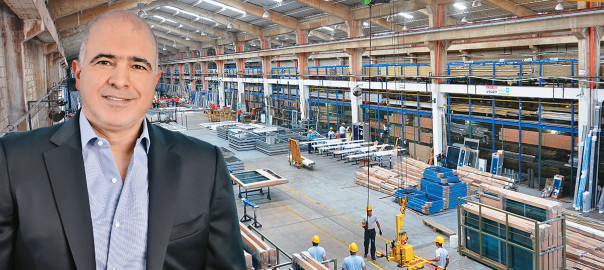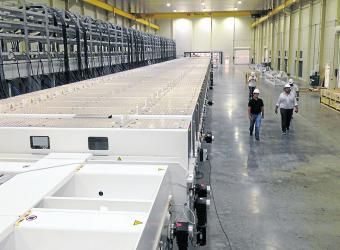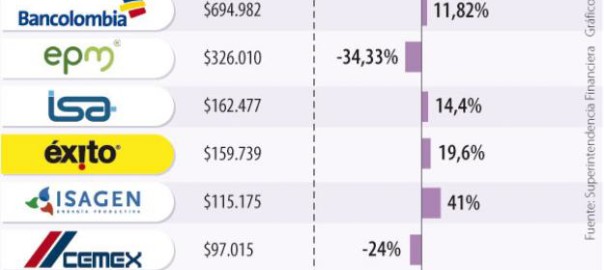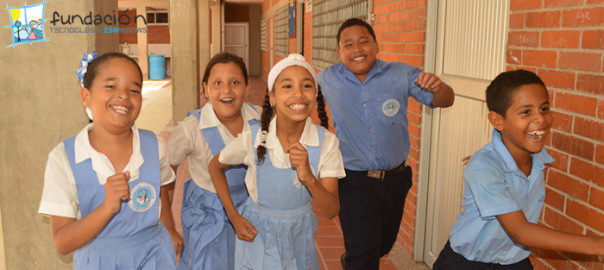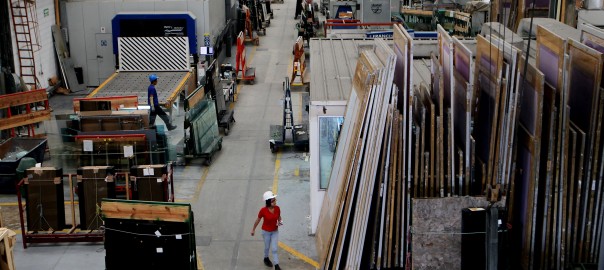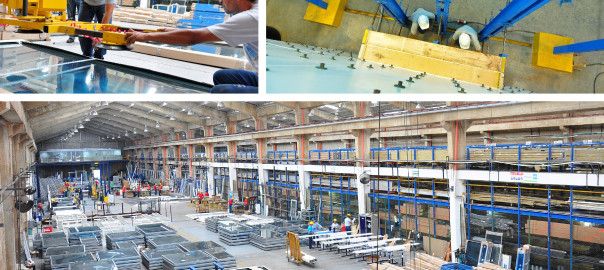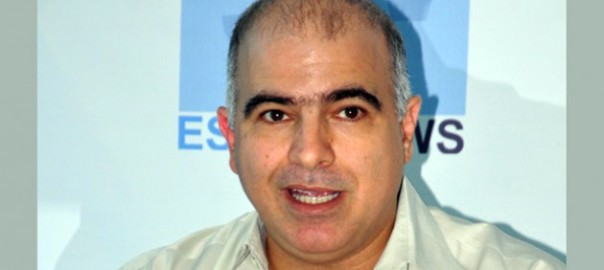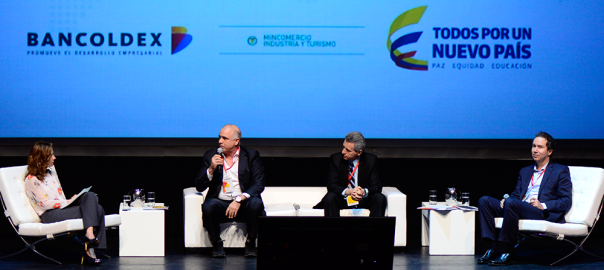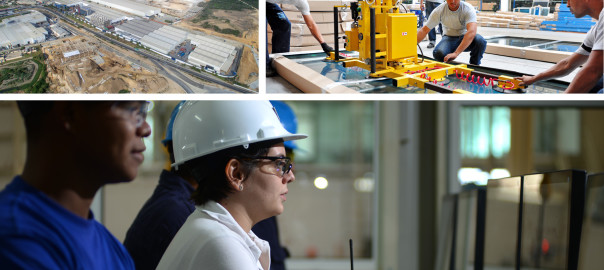Its new plant, a $ 50 million investment begins operations this week.
Tecnoglass expects its new soft coat glass factory, which starts production this week, will help open markets to which access has failed, providing growth in their sales.
In 2015 the company from Barranquilla could reach sales in excess of 800 billion pesos, and the goal is to sell 1,100 billion pesos in 2016.
The plant represents an investment of $ 50 million and is located in the industrial citadel that Tecnoglass has built in Barranquilla. It occupies an area of 2,000 square meters and is kept as sterile as an operating room.
At the center of the whole process is a german machine known as the Bonarden, in honor of its. From the outside it resembles a huge metal box, 220 meters long, filled with buttons and 64 portholes where you can see the high-tech chemical processes that take place inside.
Within the machine there exist a series of conditions like vacuum chambers and reduced gravity created by the gas emission, so that metals such as silver, zinc and titanium may adhere to the glass.
“The technology is similar to what used to separate electrons from uranium in the production of atomic fuel, but what we do is separate electrons from silver to help adhere them to the glass”,explains Tecnoglass vice president, Carlos Amin Daes.
As the process begins, the glass is quite normal, but at the end it becomes a material with which windows that are capable of maintaining the temperature while letting through visible light, are made. In other words, in hot climates they block the heat from the sun, saving on air conditioning expenses, and in colder climates the windows trap the heat, thus lowering heat expenses.
These procedures are computer controlled in their entirety.
The temperature in the compartment where the machine is housed is as cold as a refrigerator, A strong contrast to the heat normally felt in Barranquilla.
Amin recalls that by the 60s and 70s in the United States and other developed countries the heat in buildings was controlled putting reflective layers on glass, which is why you see all the huge buildings in New York and Chicago that look like giant mirrors. The disadvantage to this solution is that most of the light was reflected along with the heat and a lot of artificial lighting is required, along with higher energy bill. Instead the ‘soft coat’ is transparent and allows moderate light reflection to varying degrees, from 10º to 60º and gives bluish, greenish or a tanned color to the surface of the glass.
Six physicists worked on the development of Tecnoglass’ plant, which shows the high level of thought going into the project. In fact, according to Amin, in America there are only two similar factories in EE. UU. and Brazil. “As they say, we are taking a step further, because neither Mexico nor Chile or Argentina have anything similar,” he adds.
Guaranteed Market
Today, Tecnoglass today requires a million square meters of low-emission glass, about a third of its sales, that are purchased from a U.S. supplier. The plant that was opened has an 8 million square meter capacity, which gives the business group a possibility for large growth.
According to Tecnoglass president, Christian Daes, new markets in Europe, Asia, USA and Canada, where the use of soft coat glass in buildings is mandatory are now within reach, as well as Mexico, which is already beginning to introduce similar legislation. There is also hope that this initiative will spread to Latin America and Colombia.
“For example, in the past I could not sell glass in Texas or Canada, but now I have an advantage because my soft coat competitors there do not insulate or produce laminates, like we can. With the new factory, I assure you that we will conquer the market and we will show growth in that sector and many others”, notes Christian Daes.
THE COMPANY WILL ALSO PRODUCE CURVED GLASS
The president of the Tecnoglass conglomerate, which is made up of diferent firms: Tecnoglass (dedicated to glass), ESwindows (windows) and Alutions (aluminum profiles), Christian Daes said that contacts have already been made in Europe to sell their ‘soft coat’ products and has even got an order for three million Canadian dollars, that would not have been possible without the plant they opened in Barranquilla.
In Asia, Daes expects to sell glass sheets for others to process.
“We have not yet gone to offer, although we have connections, because we don’t like to sell what we don’t have”, notes the businessman, who claims that their product exceeds quality standards of products that come from the United States.
Additionally, the firm will produce curved glass, that they now make by hand and of lower quality, a type quite sought after by architects and is only provided by two or three factories in the world
From: Portafolio



